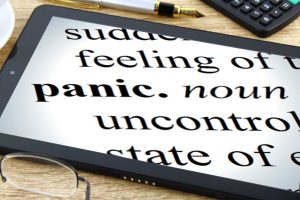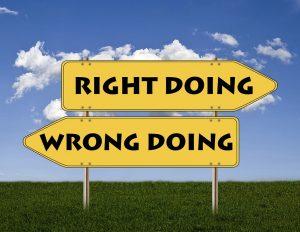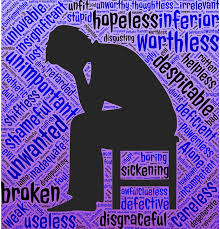Many of us have had experiences of abuse and trauma. The abuse may have happened in your adult life, or during childhood or through experiences of war and other traumatic events. Abuse can take many forms, from physical and sexual abuse to emotional and psychological forms of abuse.
(To listen instead to the Podcast on “how to trust partners again after abuse“, click here)
What constitutes abuse?
In the method that we use, Process Oriented Psychology, we define abuse as a situation where one person consciously or unconsciously misuses their power over another person and you’re not on equal grounds. There is a power differential at play, which makes it impossible, dangerous or extremely risky for the person who is being abused to defend themselves.
Having lived through an abusive relationship myself, I know first hand how hard it can be to come to terms with these experiences and the scars they leave behind. And navigating those inner scars and painful memories while you are trying to create new and fulfilling relationships, can be a big challenge.
Past experiences of abuse often reverberate in the present: Triggers show up in the body
 One of the ways that the scars of past trauma show up is in some of the visceral, physical responses we may have, which don’t match the actual danger of the current situation. For example, one of my personal triggers is when there is a loud knock on the door. It can literally send my heart racing and catches my breath in my throat. For me, my triggers usually have to do when I am confronted with some kind of sudden or unexpected reaction or noise.
One of the ways that the scars of past trauma show up is in some of the visceral, physical responses we may have, which don’t match the actual danger of the current situation. For example, one of my personal triggers is when there is a loud knock on the door. It can literally send my heart racing and catches my breath in my throat. For me, my triggers usually have to do when I am confronted with some kind of sudden or unexpected reaction or noise.
It’s hard to get rid of these triggers, since they have become part of your system during a time when you needed to be on high alert because your physical, emotional or mental survival was at stake.
The trigger functions like an internal warning system, letting you know that there’s danger ahead.
 Having lived with a partner who could suddenly change from being charming, gregarious and playful into a vicious and violent monster, I learnt how to watch for and read the most subtle signals that told me a change in his state of mind was imminent. It was my way of protecting myself from the abuse that would inevitably follow his mood shift. In situations of abuse, being watchful and on high alert often becomes second nature.
Having lived with a partner who could suddenly change from being charming, gregarious and playful into a vicious and violent monster, I learnt how to watch for and read the most subtle signals that told me a change in his state of mind was imminent. It was my way of protecting myself from the abuse that would inevitably follow his mood shift. In situations of abuse, being watchful and on high alert often becomes second nature.
Sadly, as many of us know and have experienced, abusive behavior often repeats itself. My previous partner was an ex-soldier with PTSD who himself was deeply traumatized from having lived through war and violence.
So the question becomes, knowing that it’s not easy to change our triggers, how can we transform these experiences in ways that allow us to have healthy and happy relationships after having survived abuse?
Here are some tips on how to do that:
1. Know your triggers
Triggers differ from person to person depending on the kind of abuse you survived. It can be a sudden loud sound or someone coming too close too fast or the way someone touches you or where they touch you.
Knowing what the triggers are that ‘set you off’ is helpful in many ways: It can help you to put your own reaction in perspective and differentiate it from what is actually happening in the moment.
And letting your partner know what your triggers are can help them understand where your responses are coming from and to not take it personally. This can go a long way in preventing painful conflicts for you and for your partner(s).
2. Become familiar with your triggered state
One of the ways in which I behave when I am triggered is that my ‘lawyer mind’ tends to take over. I withdraw emotionally and I question my partner’s behavior from a place of suspicion. My partner’s experience in that moment is that he feels like he is on the ‘witness stand’ and is being interrogated. Realizing that this was how I was behaving helped me to go deeper and find out what was behind it.
 In the particular situation I am thinking of, I felt threatened and anxious about my partner’s mood shift. He’d been grumpy in the morning and we’d taken some time out to each be in our own space. When I came back down, he was all cheerful and sunny. Because I could not explain the shift, it made me anxious and distrustful of his sudden good mood and I was afraid that if I opened up to him, his grumpiness of the morning would come out and ‘get me’ when I wasn’t watching. I started to interrogate him about his mood shift and soon the atmosphere between us was tense and argumentative. Once I got in touch with the anxiety I felt in the background and understood what the trigger was, I could let go of ‘the lawyer’ and share my feelings instead of how the current situation got me in touch with some old feelings from the past that were still in my system. The tension between us resolved immediately.
In the particular situation I am thinking of, I felt threatened and anxious about my partner’s mood shift. He’d been grumpy in the morning and we’d taken some time out to each be in our own space. When I came back down, he was all cheerful and sunny. Because I could not explain the shift, it made me anxious and distrustful of his sudden good mood and I was afraid that if I opened up to him, his grumpiness of the morning would come out and ‘get me’ when I wasn’t watching. I started to interrogate him about his mood shift and soon the atmosphere between us was tense and argumentative. Once I got in touch with the anxiety I felt in the background and understood what the trigger was, I could let go of ‘the lawyer’ and share my feelings instead of how the current situation got me in touch with some old feelings from the past that were still in my system. The tension between us resolved immediately.
Knowing how you tend to behave, feel and react when you are triggered can be a lifesaver for your self and for your relationships.
It allows you to have constructive and supportive conversations about what’s going on and what you both need, instead of going into attack and defence mode.
3. Become aware of the tendency to split
This is a big deal and a complex dynamic. To put it simply for the moment, splitting refers to a way of thinking in terms of ‘all good’ versus ‘all bad’. The truth is, none of us are one thing only. The beauty and fascination of being human is that we have so many different parts and we are all full of seeming contradictions and paradoxes. When we are in a triggered place however, we can’t see the other person clearly anymore for who they are: a complex human being who is sometimes great and sometimes not so great, who has amazing qualities as well as flaws and limitations, a person who can sometimes do things that are hurtful and other times be a loving or fun partner.
Here’s an example. The other day, my partner and I had one of those ‘arguments over nothing’ that many couples experience. In our case, it was over tea bags that had accumulated in the tea flask. Like I said, it was over nothing. But as is always the case, the fact that the argument is over nothing in terms of its content is not the point. What happened was that he raised his voice, I didn’t see it coming and it hit me right away in that triggered place. And my totally exaggerated but instinctual reaction in that moment was to question not only my current relationship but also whether I wanted to be in any relationship ever again. As out of proportion as that sounds, this is often what happens to us when we are in a triggered state: the other person may do something small that reminds us of the past abuse or trauma and suddenly they become the enemy: unconsciously, they have become the representation of our past abuse and they are now “all bad”.
 This is a potentially risky moment in a relationship. Because when we see our partner as “the enemy”, it justifies how we then treat them in response: how we give them the cold shoulder or withdraw in an angry silence, or how we leave them, either literally or figuratively. There may be a tendency to lock onto something that your partner said or did, which then becomes ‘evidence’ for your suspicions and you can no longer see anything else that may support other views of your partner. In my case, a grumpy mood combined with a sudden mood shift turned into a warning signal of some danger that was about to happen. The more I ‘grilled’ my partner, the more he felt interrogated and soon we got locked into a dynamic that became circular. What was potentially a little thing (many of us can feel a bit grumpy in the morning before we’ve had our coffee) became a big thing because it was tagged with past experiences and memories.
This is a potentially risky moment in a relationship. Because when we see our partner as “the enemy”, it justifies how we then treat them in response: how we give them the cold shoulder or withdraw in an angry silence, or how we leave them, either literally or figuratively. There may be a tendency to lock onto something that your partner said or did, which then becomes ‘evidence’ for your suspicions and you can no longer see anything else that may support other views of your partner. In my case, a grumpy mood combined with a sudden mood shift turned into a warning signal of some danger that was about to happen. The more I ‘grilled’ my partner, the more he felt interrogated and soon we got locked into a dynamic that became circular. What was potentially a little thing (many of us can feel a bit grumpy in the morning before we’ve had our coffee) became a big thing because it was tagged with past experiences and memories.
For the partner on the receiving end, it can feel like a very unfair deal: being treated in ways that isn’t in proportion to what you did and feeling punished for something you didn’t do and have no control over.
Here are some ways to process and transform this type of situation:
 o Take time out
o Take time out
Space away is essential, so you can gain some perspective on the situation instead of acting from your survival instinct and triggered state. Cooling down and stepping away can help you gain some detachment and see the bigger picture.
o Learn to consciously distinguish between the abuse and your current situation and relationship
Literally ask yourself these kinds of question: how is this person or situation different from the abuse I suffered? What was the intention of the person who abused me and how does this differ from my current partner’s intention? How am I different from how I was then? What resources do I have now that I didn’t have then?
o Check out your assumptions
Learn to give your current partner the benefit of the doubt by talking to them about what happened, what they did and how it made you feel and ask them (instead of assuming that you know!) what was going on for them, where they were coming from and what their intention was. These kinds of conversations help to build trust between the two of you and can help you to start to see all the ways in which your partner is different from the past.
4. Learn to set boundaries in direct and constructive ways
This is often a scary thing for people who have been abused. Your relationship with power is tainted with very negative and destructive experiences. So to feel your power and come out with it directly and show it to another person can bring up a lot of fear.
One of the big challenges for people who have survived abuse is this negative relationship with power. The danger of not befriending your own power is that your own aggression and rage goes underground and comes out in indirect ways.
 Ignoring a partner, withdrawing emotionally or blaming and making your partner feel guilty for what they did or threatening to leave the relationship are all examples of ways that aggression is expressed in passive and indirect ways.
Ignoring a partner, withdrawing emotionally or blaming and making your partner feel guilty for what they did or threatening to leave the relationship are all examples of ways that aggression is expressed in passive and indirect ways.
Blaming ourselves for the past abuse are other examples of how our aggression and anger may come out, this time directed against ourselves. The inner abuser often comes in the form of shaming you, blaming you for what happened, using any kind of ‘lesson from the past’ as a way to hammer you: “See, if you had only listened to yourself better or stood up for yourself more, you brought it on yourself by not being stronger and speaking up more.” While it looks like the ‘inner abuser’ wants you to protect yourself better, by blaming you for not being able to protect yourself while ignoring the circumstances and power differentials that surrounded the abuse, the inner abuser perpetuates the abuse.
 Also, by blaming you for the abuse, the inner abuser doesn’t allow you to experience the real feelings and real losses that go with having been abused. In our culture, there is a tendency to look negatively at “being a victim”. And yes, it’s true that all of us can sometimes get stuck in feelings of hopelessness or helplessness. But that doesn’t negate the fact that when you have been abused, the truth is that in that situation you were the victim. And part of the healing is to make space for the feelings of loss, grief, fear and rage that you could not feel at the time because in situations of abuse it is often unsafe to have any feelings at all.
Also, by blaming you for the abuse, the inner abuser doesn’t allow you to experience the real feelings and real losses that go with having been abused. In our culture, there is a tendency to look negatively at “being a victim”. And yes, it’s true that all of us can sometimes get stuck in feelings of hopelessness or helplessness. But that doesn’t negate the fact that when you have been abused, the truth is that in that situation you were the victim. And part of the healing is to make space for the feelings of loss, grief, fear and rage that you could not feel at the time because in situations of abuse it is often unsafe to have any feelings at all.
In other words:
It is essential to reconnect to our sense of power, so we don’t repeat the cycle of abuse, either with our partners, sometimes in subtle or indirect ways, or inwardly, against ourselves.
(For more on the topic of “Connecting with Personal Power After Abuse, Trauma, or Marginalization” listen to this excellent interview by Lifeworks Psychotherapy with our dear friend and colleague Julie Diamond)
Learning how to protect yourself against your inner abuser is similar to defending yourself against an outer abuser. It’s about taking your own side and setting strong and clear boundaries. This is why reconnecting to your own sense of power is one of the most essential means to create new kinds of relationships that don’t mirror the abusive dynamics of the past.
 In it’s most essential nature, power is neutral. It’s energy. Energy that you can use in positive or in negative ways. And the good news is: positive power builds its own momentum: the more positive experiences you have of using your power in your relationships in constructive and direct ways, the safer you’ll feel to keep connecting to and expressing your power.
In it’s most essential nature, power is neutral. It’s energy. Energy that you can use in positive or in negative ways. And the good news is: positive power builds its own momentum: the more positive experiences you have of using your power in your relationships in constructive and direct ways, the safer you’ll feel to keep connecting to and expressing your power.
There’s something very powerful and healing in being able to look a partner in the eyes and take your own side strongly, express how you feel and state your boundary or your need or your want. The act of openly and directly protecting yourself and taking a stand is the very thing that may have been impossible to do during the situation of abuse, especially when there were big power differentials. This is why it is also one of the most healing things you can do, for yourself and for your relationships.
5. Let go of impossible expectations
Letting your partner know what your triggers are does not mean that your partner will never trigger you. And to expect that of anyone is not only unfair to the other person, it also sets up a dynamic where the other person will feel like they have to walk on eggshells around you and sooner or later that will backfire.
Yes, you have every right to expect that your partners treat you with respect, and, at the same time, it’s important not to hold your partner responsible for your triggers. They are part of your history. That’s why it’s so important to learn to distinguish between when abuse is happening or repeating itself and your reaction is appropriate to the actual situation, and when it’s your own history reacting.
At the same time, communicating about your triggers will help your partner understand why you may have strong reactions to what may seem disproportionate. A really helpful thing you can do for your relationship is to learn how to meta-communicate about what’s going on: “I’m triggered, I need space to process this, I will come back into the relationship later but right now I need to come back into my own skin first.” This can go a long way in helping your partner help you in giving you the space you need without taking it personally.
THE POWER OF SENSITIVITY
 Know that having lived through an experience of abuse doesn’t turn you into ‘damaged goods’ or make you a worse partner. On the contrary: the sensitivity and awareness that people who live through abuse develop by necessity can become a huge asset in your relationships. You’ll pick up information and see signals others may overlook. Your ability to empathize with other people’s feelings and hurts is often magnified exactly because of what you have lived through.
Know that having lived through an experience of abuse doesn’t turn you into ‘damaged goods’ or make you a worse partner. On the contrary: the sensitivity and awareness that people who live through abuse develop by necessity can become a huge asset in your relationships. You’ll pick up information and see signals others may overlook. Your ability to empathize with other people’s feelings and hurts is often magnified exactly because of what you have lived through.
Know that having lived through the abuse of power can potentially make you an expert and teacher in how to use power in ways that heal rather than hurt, nurture instead of demean, deepen instead of destroy relationships.

